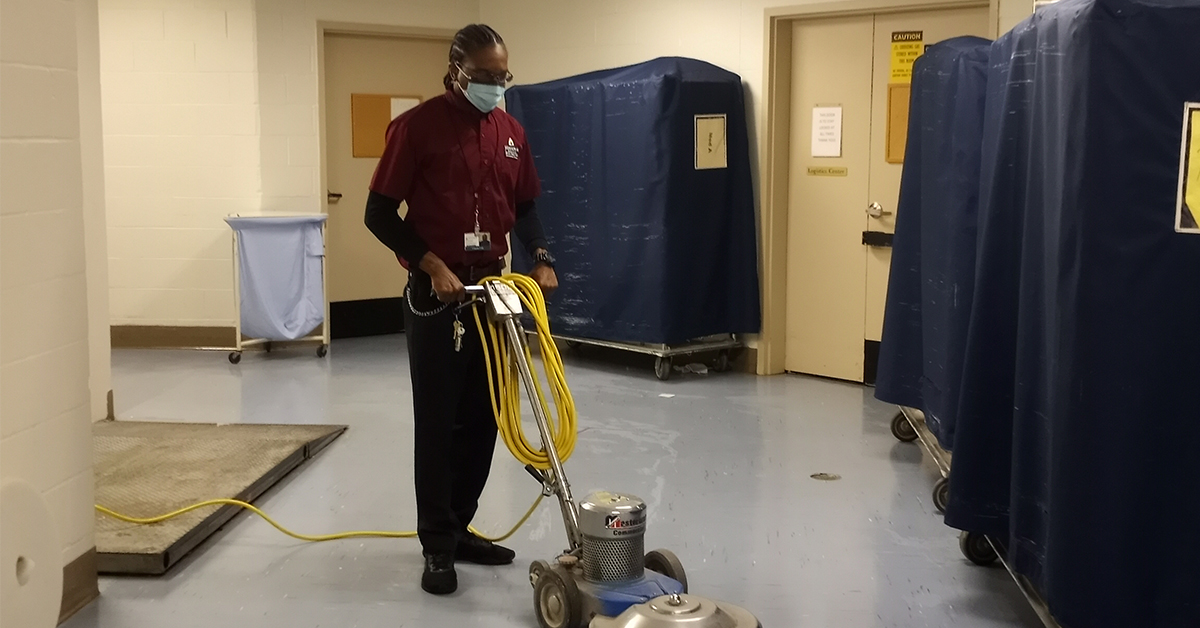After working 17 years in retail, Asya Shaheeddavis was ready for a change.
Shaheeddavis majored in biology in college and was looking for an opportunity to get back in the field. She saw an ad about the BioTechnical Institute of Maryland (BTI)’s tuition-free program for under- and unemployed workers who want to build critical laboratory skills, and decided to apply.
“It was like a refresher course for me,” says Shaheeddavis. “We learned the proper techniques and terminology for working in a laboratory. I attended BTI in the morning and worked in the afternoon. They helped me start a new chapter.”
After completing the program in 2016, Shaheeddavis participated in a 100-hour paid laboratory internship at Johns Hopkins Medicine. She then was hired as a lab technician the next year.
The BTI program has two components, according to Tim Fawcett, Ph.D., the organization’s scientific director. Students begin with BioSTART classes and focus on reading and math skills as well as professional development for four hours per day, five days per week. Those who make it through BioSTART are accepted into the lab associates’ program, which trains students to be entry-level laboratory techs.
Students are expected to maintain an 80% grade average to graduate, Fawcett says, and many work full-time jobs overnight and have families.
“It’s a rigorous program that requires devotion,” says Fawcett. “If you’re willing to work hard, it can improve your life dramatically.”
To remain tuition free, BTI is supported by programs like the Johns Hopkins Neighborhood Fund, which helps nonprofit organizations that serve the communities near Johns Hopkins campuses and are associated with Johns Hopkins Medicine through employee or institutional involvement.
“We have an 80% graduation rate and we’ve graduated 600 people to date,” says Fawcett. “The average salary for our graduates is more than $20 an hour. They often receive paid vacation, health benefits and life insurance. Our program helps families make livable wages.”
Brandy Carter, Ph.D., BTI executive director, says having relationships with organizations like Johns Hopkins Medicine has helped BTI transform lives.
“Johns Hopkins is one of the most well-known medical facilities in the world. To have that relationship and have our participants in a space that innovative is transformative,” she says. “It’s representative of what BTI stands for.”
Thanks to the collaboration between BTI and Johns Hopkins Medicine, Shaheeddavis now spends her days processing, storing and shipping specimens for Johns Hopkins Kimmel Cancer Center’s patient trials.
“It’s an important job,” Shaheeddavis says. “Patients that we get specimens from are being treated for cancer. It’s vital that the specimens are processed properly because it makes a difference in what kind of treatment the patients are going to be on.”
Karie Brooks, M.S., Shaheeddavis’ supervisor, says that all staff members hired for the laboratory are trained in specimen processing and shipping.
“Asya was very strong in shipping, and because that department was so busy, we needed a leader in place,” Brooks says.
Based on her performance, Shaheeddavis was promoted to laboratory coordinator in 2018 and serves as the shipping lead.
“Asya oversees the staff, checking their shipments and documentation,” Brooks says. “She also helps maintain our inventory system. She’s very organized.”
Brooks says BTI gave Shaheeddavis insight into the importance of documentation.
“The shipping department is all about quality control,” Brooks says. “Asya makes sure everything is complete and accurate. We handle over 300 clinical trials in our lab, and she manages an Outlook calendar that helps organize all the shipments.”
Brooks says the collaboration between BTI and Johns Hopkins Medicine is a special one.
“There’s not a lot of ways for individuals to get these sorts of skills,” Brooks says. “The things taught at BTI are not things you learn in biology courses. BTI is a great resource for us to find qualified candidates.”



